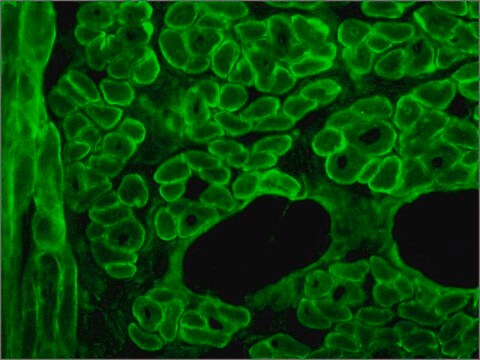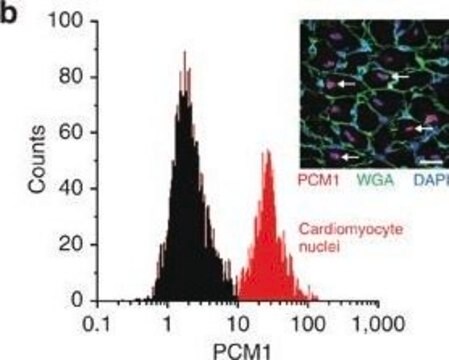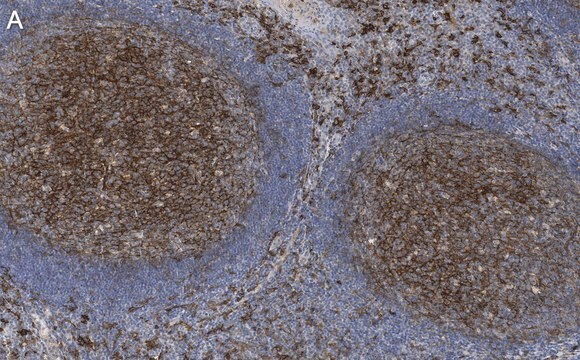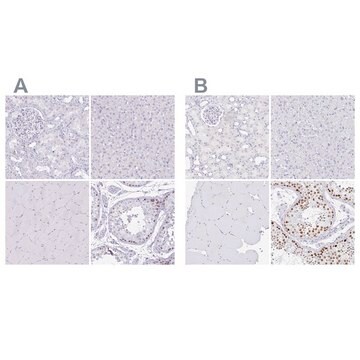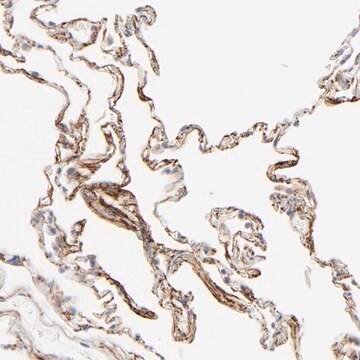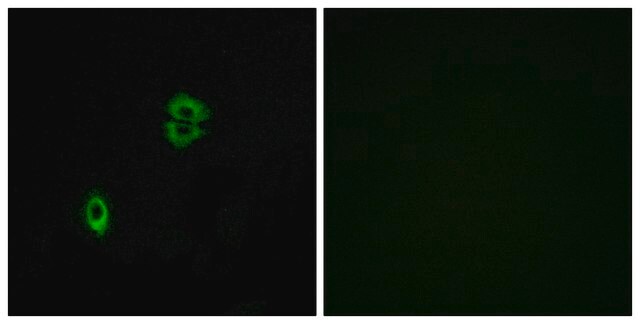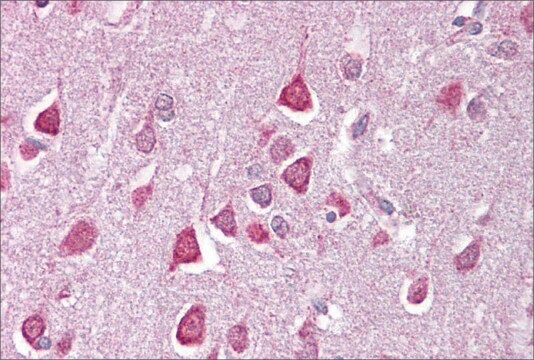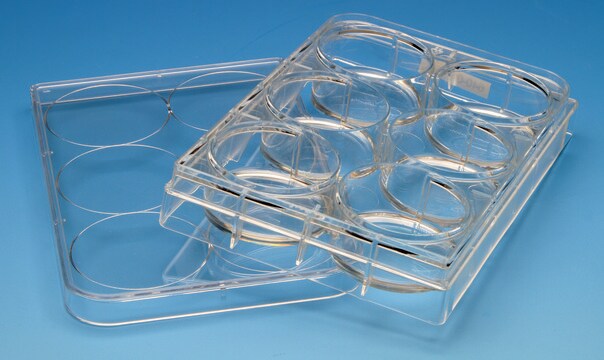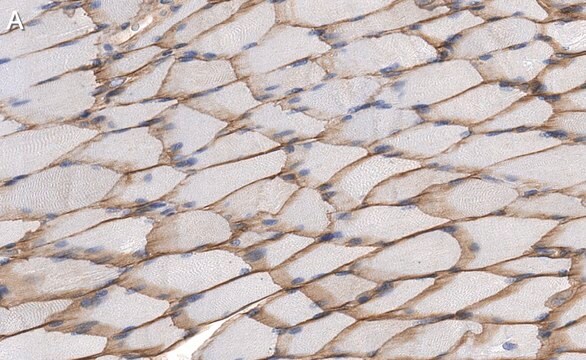MAB1692
Anti-Dystrophin Antibody
CHEMICON®, mouse monoclonal, 6D3
Synonyme(s) :
Anti-BMD, Anti-CMD3B, Anti-DXS142, Anti-DXS164, Anti-DXS206, Anti-DXS230, Anti-DXS239, Anti-DXS268, Anti-DXS269, Anti-DXS270, Anti-DXS272, Anti-MRX85
About This Item
Produits recommandés
Nom du produit
Anti-Dystrophin Antibody, mid-rod, clone 6D3, culture supernatant, clone 6D3, Chemicon®
Source biologique
mouse
Niveau de qualité
Forme d'anticorps
culture supernatant
Type de produit anticorps
primary antibodies
Clone
6D3, monoclonal
Espèces réactives
mouse, canine, human, rabbit, rat
Fabricant/nom de marque
Chemicon®
Technique(s)
immunohistochemistry: suitable
western blot: suitable
Isotype
IgG2a
Numéro d'accès NCBI
Numéro d'accès UniProt
Conditions d'expédition
dry ice
Modification post-traductionnelle de la cible
unmodified
Informations sur le gène
human ... DMD(1756)
Spécificité
STAINING PATTERN:Light microscopy: continuous rim of labeling at the periphery of muscle fibers.
E.M. gold: close to the cytoplasmic face of the plasma membrane.
Western blotting: strong double bands at approximately 400 kD plus metabolites of lower molecular mass.
Immunogène
Application
undiluted - 1:20. Not recommended for use on paraffin embedded tissue.
EM Gold (Light fixation with 2% formaldehyde + 0.001% glutaraldehyde for 1 hour. 2.3M sucrose used as cryoprotectant.): use undiluted. 90 minute incubation at 25°C.
Western blotting: use 1:100-1:250.
Optimal working dilutions must be determined by the end user.
Protocol for Immunohistochemical use of MAB1692
1) Freeze muscle blocks in isopentane chilled in liquid nitrogen.
2) Cut 4 μm to 10 μm sections and air dry on slides coated with 0.5% gelatin containing 0.05% chrome alum.
3) Slides may be stored at -70 °C wrapped in cling film until required. If stored sections are used, allow sections to equilibrate to room temperature before unwrapping and proceeding.
4) Apply a 50 μL aliquot of primary antibody to sections (unfixed). Incubate for 1 hour at room temperature or 37°C.
5) Wash sections 3 x 10 minutes in phosphate buffered saline.
6) Apply a 50 μL aliquot of labeled second antibody. Incubate for 60 minutes at 25°C.
7) Wash sections 3 x 10 minutes in phosphate buffered saline.
8) Mount fluorescent sections in aqueous mounting media or visualize peroxidase label (DAB). Dehydrate, clean and mount peroxidase labeled sections for permanent preparations.
Metabolism
Muscle Physiology
Forme physique
Stockage et stabilité
Remarque sur l'analyse
POSITIVE CONTROL: Snap frozen normal human or rat striated muscle.
Informations légales
Clause de non-responsabilité
Vous ne trouvez pas le bon produit ?
Essayez notre Outil de sélection de produits.
En option
Code de la classe de stockage
12 - Non Combustible Liquids
Classe de danger pour l'eau (WGK)
WGK 2
Point d'éclair (°F)
Not applicable
Point d'éclair (°C)
Not applicable
Certificats d'analyse (COA)
Recherchez un Certificats d'analyse (COA) en saisissant le numéro de lot du produit. Les numéros de lot figurent sur l'étiquette du produit après les mots "Lot" ou "Batch".
Déjà en possession de ce produit ?
Retrouvez la documentation relative aux produits que vous avez récemment achetés dans la Bibliothèque de documents.
Notre équipe de scientifiques dispose d'une expérience dans tous les secteurs de la recherche, notamment en sciences de la vie, science des matériaux, synthèse chimique, chromatographie, analyse et dans de nombreux autres domaines..
Contacter notre Service technique